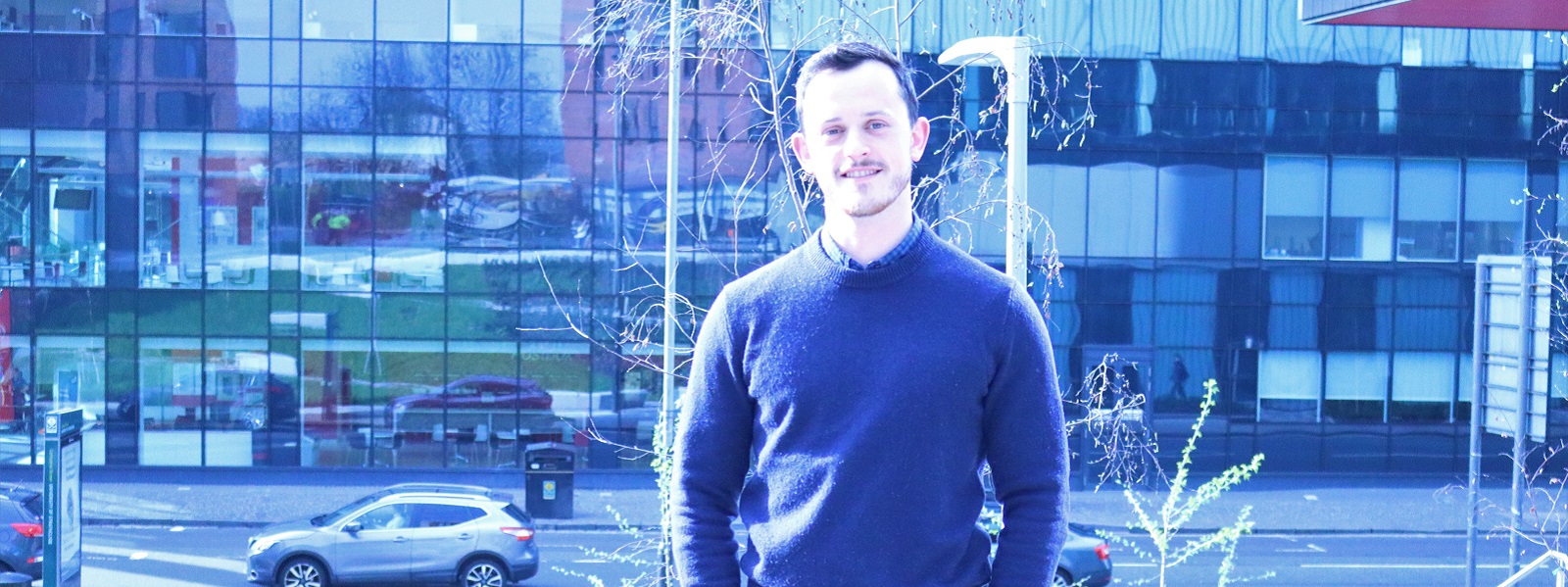Graham Hamley
Postgraduate Research (PhD), 1st Year Law
Tell us a bit about yourself...
I’m a first year PhD student within the Strathclyde Centre for Environmental Law and Governance (SCELG). I earned my LLB in Scots Law from the University of Dundee and an LLM in Global Environment and Climate Change Law from the University of Edinburgh. After I graduated from my LLM in 2011, I worked as a legal consultant for a variety of international development organisations, including the United Nations Food and Agriculture Organisation, the World Organization for Animal Health and the World Bank. Most recently, I worked as a team leader at the World Bank in Washington DC where we conducted comparative legal analysis on national agriculture laws across the world. I also worked at a business-focused climate change charity, helping corporations understand the climate impacts of their supply chains. Having spent the last few years living in London and then the US, I returned to Scotland in October 2018 to begin my PhD.
Why did you choose Strathclyde for your postgraduate research study?
The main reason I chose Strathclyde was because I wanted to work with Professor Elisa Morgera and the wider SCELG team. SCELG has developed a strong reputation as a leading research centre on environmental law —especially ocean governance — given its central role in the recently established GCRF-funded One Ocean Hub, also headed by Professor Morgera. I am really excited to be working with this accomplished and ground-breaking group of researchers.
Tell us about the nature of your research?
Humans are dependent on marine biodiversity in a variety of ways: as a source of food, biomedical research and a significant portion of the oxygen that we breathe. Unfortunately, despite this, marine biodiversity continues to degrade and diminish as a result of human drivers, including overfishing, pollution and climate change. With this in mind, through my research I aim to demonstrate that stronger protection of marine biodiversity is not only an environmental issue, but a human rights issue as well, and is a fundamental requirement for the protection and fulfilment of the human right to health.
What do you like about your research area?
I have always had a profound passion for and interest in the ocean. I take every opportunity I can get to spend time near the water, whether I’m surfing, scuba diving or just being by the sea. My research area has allowed me to make my passion my everyday focus. I’m excited to be able to learn more about this area and make my own contribution to the realm of ocean governance.
What’s the Strathclyde research community like?
Before starting at Strathclyde I was frequently told that a PhD can be a lonely and isolating experience, but I have found my own experience to be quite the opposite. We are an incredibly close-knit and supportive family, and the university staff are always on hand to help answer any questions you may have.
What are the Strathclyde facilities like?
On a daily basis, I mainly make use of the HASS graduate school facilities, which give me the structure and friendly office environment that I personally need to work well. The gym is also fantastic, and easily accessible in the heart of the university campus.
Tell us about the support from your supervisor and the wider Strathclyde team?
The support that I have received thus far at Strathclyde has been exceptional. I set up regular meetings with my supervisors, who help me define the focus and direction of my research. I’m very appreciative of their availability and that they make time to meet with me whenever necessary. I am also continuously impressed by the willingness of the entire Strathclyde team to take time out of their day to talk with me to discuss my research or help me work through challenges.
What's the best thing about Strathclyde?
In addition to the people themselves that make Strathclyde a fun and supportive place to be, I personally love that Strathclyde seems to bridge the gap between theory and practice, allowing you to understand how academia fits into the bigger picture of actions that ultimately work together to achieve tangible change in the world.
What would you like to do after your PhD?
After my PhD I would like to return to work in international organisations (ideally IUCN or the United Nations), where I would like to focus upon the use of law to achieve protection and sustainable use of the ocean.
